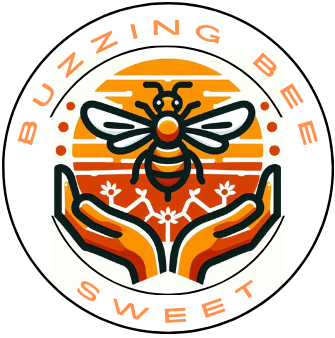Bees, those buzzing little marvels, are far more important than they let on. They’re superstars of the ecosystem, playing a leading role in pollinating many of the crops and plants we rely on. Without their hard work, we’d be missing out on more than just honey – they’d leave a gaping hole in the food chain and our dinner plates.
Pesticides, on the flip side, are substances designed to fend off pests that might munch on crops. Farmers and gardeners use them to protect plants from insects, weeds, and diseases. While they’re essential for maintaining crop health, there’s a catch. Pesticides can have some unintended side effects, especially when it comes to our tiny friends, the bees.
Why’s this all so important? Well, the health of bee populations is closely linked to the health of our environment and agriculture. A dip in bee numbers isn’t just a nature problem; it’s a people problem too. As their numbers dwindle, the real-life ripple effects touch everything from our food supply to our livelihoods.
Understanding the connection between bees and pesticides is like unlocking a complex puzzle. It involves looking at how the substances intended to protect crops might end up putting bee populations at risk. This is the backdrop we’re setting to explore this critical issue further.
Silent Threats: How Pesticides Affect Bee Populations
Pesticides, especially a certain group called neonicotinoids, have a stealthy way of causing chaos for bees. These chemicals mess with bees’ nerv systems. They might look perfectly fine from the outside, but inside, they’re thrown off balance, struggling to navigate, forage, and even communicate back to the hive.
Recent research backs this up, showing a worrying link between neonicotinoids and the decline in bee numbers. When bees collect pollen from treated plants, they’re unknowingly bringing poison back home. It’s a slow, harmful process that can end up shrinking entire colonies.
On top of navigation and communication problems, these substances can lower bee immunity, leaving them more susceptible to diseases. Imagine trying to go about your daily business while feeling under the weather and lost—it’s a rough deal for bees.
Though it might feel overwhelming, understanding these threats gives us the insights we need to start thinking about solutions. Knowing the specifics of how pesticides affect bees is the first step in finding ways to protect them.
Ripple Effects: Consequences on Biodiversity and Agriculture
The decline in bee populations sends shockwaves through both biodiversity and agriculture. Bees, as top pollinators, help more than 70 of the top 100 crops that feed most of the world. When bees struggle, it means trouble for food production, reducing yields and potentially leading to shortages.
Beyond the fields, the impact spirals into the wild. Many plants and animals depend on bees. With fewer bees around, numerous plant species can’t reproduce effectively, which affects the animals that rely on those plants for food. This can diminish biodiversity and disturb natural ecosystems.
Farmers, feeling the pinch from reduced pollination, may face economic losses. For them, bees aren’t just helpful; they’re vital partners. Imagine having to pollinate crops manually or deal with reduced harvests—it’s a costly, sometimes impossible task.
The economic ripple extends further to industries relying on farming produce, indicating a big chain reaction. Globally, the agriculture sector feels the blow, affecting food security and prices, which can have wider societal consequences.
These cascading effects underline the importance of maintaining healthy bee populations. Protecting bees isn’t just about conservation; it’s about ensuring ecological balance and agricultural productivity.
Towards a Sustainable Future: Mitigating Pesticide Impact on Bees
Making a shift towards sustainable pest management can make a world of difference. Integrated Pest Management (IPM) strategies, for instance, offer a more balanced approach. By combining biological controls, like beneficial insects, with fewer chemical inputs, we can reduce reliance on pesticides.
Policymakers are starting to take note too, promoting regulations that aim to limit the impact of harmful pesticides. Strict regulations on neonicotinoids in regions like the EU highlight a growing recognition that the costs of inaction are just too high.
Local communities and urban areas are also rising to the challenge by creating safe havens for bees. Encouraging planting of native flowers in gardens and reducing pesticide use at home can support their recovery.
On an individual level, awareness and education can empower us to make choices that benefit bees. Choosing organic products, participating in local conservation efforts, and staying informed about sustainable practices makes each of us part of the solution.
Protecting bees requires teamwork. Whether you’re a farmer, a gardener, or just someone who cares about the environment, everyone has a role to play in ensuring a thriving future for our buzzing buddies.

This article effectively highlights the crucial role bees play in agriculture and ecosystem health.
It details how pesticides, particularly neonicotinoids, negatively impact bee populations by disrupting their navigation, communication, and immunity, which can jeopardize entire colonies.
The discussion on the cascading effects on biodiversity and food production underscores the urgent need to protect bees for a balanced ecosystem. Additionally, the article presents practical solutions such as Integrated Pest Management (IPM) and community initiatives, emphasizing the importance of sustainable practices and regulations to mitigate pesticide effects.
Overall, it offers a comprehensive overview that encourages collaboration among individuals, farmers, and policymakers to safeguard bee populations.
Hi Peter!
Thank you for your comments!
Yes, it’s important to keep up the discussion about pesticides and their affect on nature. To make people understand to only use natural means.
/Mats